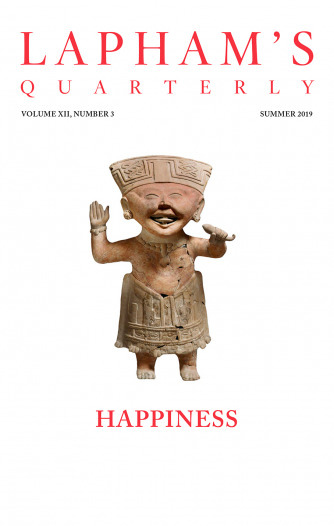Because we consult diviners when there is no occasion for us to do so, many of us fail to carry out many appropriate actions. For what can the diviner see, besides death, or danger, or sickness, or, in general, things of that kind?
If it becomes necessary, then, to risk my life for a friend, or if it is appropriate for me even to die for him, what occasion have I to consult a diviner? Have I not the diviner within me, who has told me the true nature of good and evil, and has expounded the signs that indicate both? What further need have I, then, of the entrails of victims or the flight of birds? Can I bear with a diviner when he says, “This is expedient for you?” For does he know what is expedient for me? Does he know what good is? Has he learned the signs that indicate good and evil as he has learned the signs in the entrails? For if he knows the signs of good and evil, he also knows those of things honorable and shameful, and just and unjust. It is up to you to tell me, sir, what is indicated for me—life or death, riches or poverty. But whether these things are expedient or inexpedient, am I going to ask that of you? You don’t speak on questions of grammar, do you? And yet you venture to do so here, where all of us go astray and are at variance with one another? It was thus a good answer that the woman made when she wanted to send a boatload of supplies to Gratilla in her exile and someone said, “Domitian will only take them away again.” “I would rather he took them away,” she replied, “than that I should fail to send them.”

The Calumny of Apelles, by Sandro Botticelli, c. 1495. Deceit, Treachery, and Calumny (led by Envy) drag a young man before King Midas (flanked by Ignorance and Suspicion) while Remorse turns to look at naked Truth.
What, then, leads us to consult diviners so constantly? Cowardice, our fear of what will turn out. That is why we flatter the diviners. “Tell me, sir, shall I inherit my father’s property?” “Let us see; let us offer a sacrifice over this.” “Yes, sir, as fortune wills.” Then if he says, “You will inherit the property,” we give him thanks as if we had received the inheritance from him. And in consequence, they carry on deceiving us. What should we do, then? We should come to them without desire or aversion, just as a traveler asks somebody he meets which of two roads to take, without having any particular desire to travel on the right-hand road rather than the left; for he does not wish to travel on one of them in particular, but on the one that will lead him to where he wants to go. It is in this way also that we should approach God as a guide, just as we make use of our eyes, not calling on them to show us things of one kind rather than another, but accepting the impressions of whatever they display to us. But now, all of a tremble, we grasp at the reader of bird flights, calling on him as if he were a god, beseeching him, “Have mercy on me, allow that I may come off safe.” You slave, do you wish for anything, then, but what is best for you? And is anything better than what seems best to God? Why do you do all you can to corrupt your judge and mislead your counselor?
From his Discourses. Growing up as a slave, Epictetus gained his freedom and was banished along with other philosophers by the Roman emperor Domitian in 89, settling in Nicopolis on the western coast of Greece. His teachings were recorded by his pupil Arrian, a Greek historian and military commander, who also wrote a book that chronicled the campaigns of Alexander the Great. “You know, then,” Epictetus says in the Discourses, “how very languidly you are affected by good and evil, and how vehemently by things indifferent.”
Back to Issue


